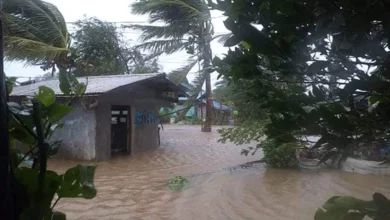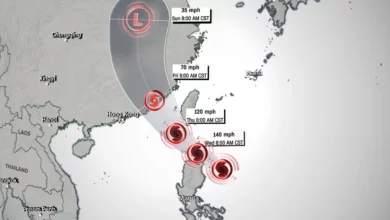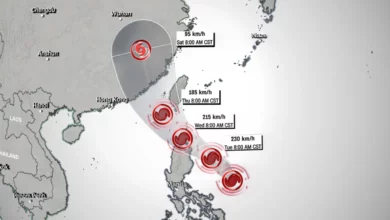
China said it will ignore a ruling expected on Tuesday by an arbitration court in The Hague in a case in which the Philippines is challenging Beijing's right to exploit resources across the South China Sea.
China has boycotted the hearings at the Permanent Court of Arbitration, saying it does not have jurisdiction over the dispute.
Foreign Ministry spokesman Lu Kang, asked how China would be getting the ruling, said it would have nothing to do with the court.
"We won't accept any of their so-called materials, no matter what they are," Lu told reporters.
The ruling stands to ramp up tensions in the region, where China's increased military assertiveness has worried its smaller neighbours and is a point of confrontation with the United States.
China claims most of the energy-rich waters through which about $5 trillion in ship-borne trade passes every year. Neighbours Brunei, Malaysia, the Philippines, Taiwan and Vietnam also have claims.
The United States and China regularly conduct military exercises in the area and have regularly accused each other of militarising the region.
Influential state-run Chinese newspaper the Global Times said in an editorial on Tuesday that China's reaction to the ruling "depends on provocation".
"So far, none of the concerned parties want military confrontation. But all are ratcheting up military preparations," it said.
U.S. diplomatic, military and intelligence officers said China’s reaction to the court’s decision will largely determine how other claimants, as well as the United States, responded.
If, for example, China accelerates or escalates its military activities in the disputed area, the U.S. and other nations will have little choice but to respond with new and possibly enlarged and multinational maritime freedom of navigation and aerial missions, the U.S. officials said, speaking on the condition of anonymity.
Contingency planning for such exercises is already completed or in its final stages, said one of the officials, who quickly added: “We hope it doesn’t come to that.”
Even if Beijing ignores the decision, it is significant as it will be the first time that a legal challenge has been brought in the dispute, which covers some of the world's most promising oil and gas fields and vital fishing grounds. [here
It reflects the shifting balance of power in the 3.5 million sq km sea, where China has been expanding its presence by building artificial islands and dispatching patrol boats that keep Philippine fishing vessels away.
Around 100 members of a Philippine nationalist group demonstrated outside the Chinese consulate in Manila on Tuesday, calling on Beijing to accept the decision and leave the Scarborough Shoal, a popular fishing zone off limits to Filipinos since 2012.
Will judges 'go big'?
The case, brought by the Philippines in 2013, hinges on the legal status of reefs, rocks and artificial islands in the Scarborough Shoal and Spratly Island group.
Manila's 15-point case critically asks the tribunal to rule on the status of China's so-called "nine-dash line", a boundary that is the basis for its 69-year-old claim to roughly 85 percent of the South China Sea.
The tribunal will not decide on matters of territorial sovereignty, but will apply the U.N. Convention on the Law of the Sea (UNCLOS) in determining which countries can claim economic exploitation rights, based on geographic features.
Under the 1982 UNCLOS, islands grant their owners a 12 nautical mile radius of sovereign territorial waters.
Manila argued in closed court hearings that none of the islands, shoals and reefs in the Spratlys are large enough to grant an additional 200 nautical mile exclusive economic zone (EEZ) for fishing and extracting seabed resources.
Manila also contests China's effective control of the Scarborough Shoal, a scattering of rocks off the coast of the Philippines' Luzon island, seeking a ruling that would show it sits within the Philippines' EEZ.
A decision on the nine-dash-line's legality would signal that the court's judges had "decided to go big", said Julian Ku, law professor at Hofstra University. "If the nine-dash line were declared invalid, then in theory all the other countries would be emboldened."
The court has no power of enforcement, but a victory for the Philippines could spur Taiwan, Vietnam, Malaysia and Brunei to file similar cases.
Japan, which is involved in a separate territorial dispute with China in the East China Sea, said its military would closely monitor Chinese activity after the ruling.
"We urge all parties concerned to react in a way that does not raise tensions," Defence Minister Gen Nakatani told a briefing in Tokyo. "We will keep a close watch on the situation in the East China Sea."




